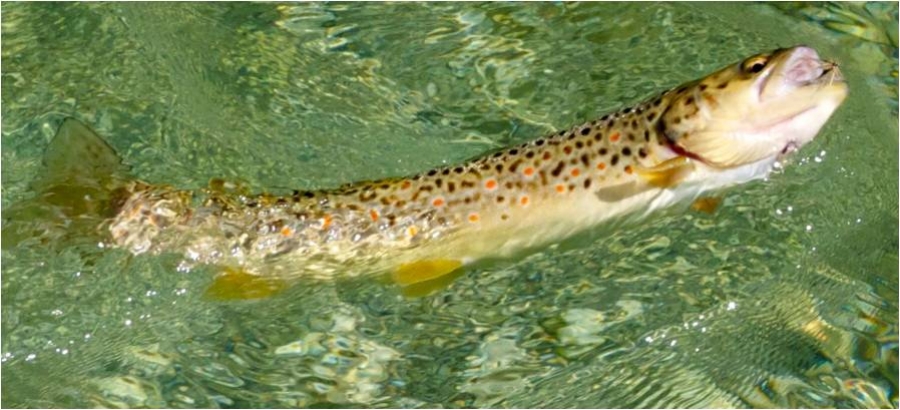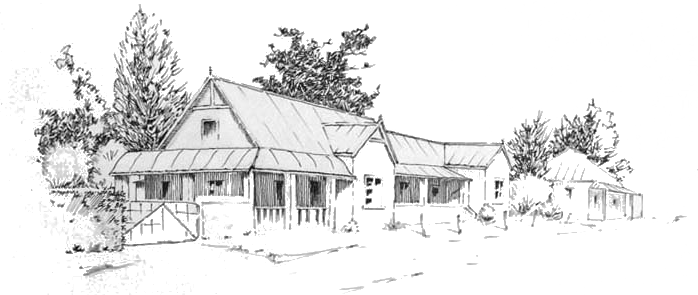I recently tied up a few DDDs having come by a few pieces klipspringer hair and a couple of RAB variant dry flies and found myself able to field test these South African patterns in some distant waters.
Click in images to enlarge
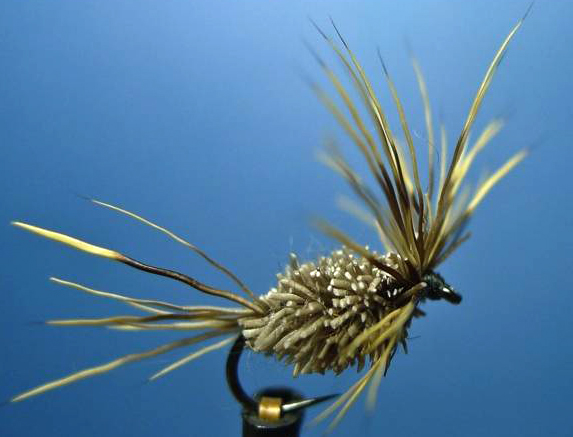
The DDD
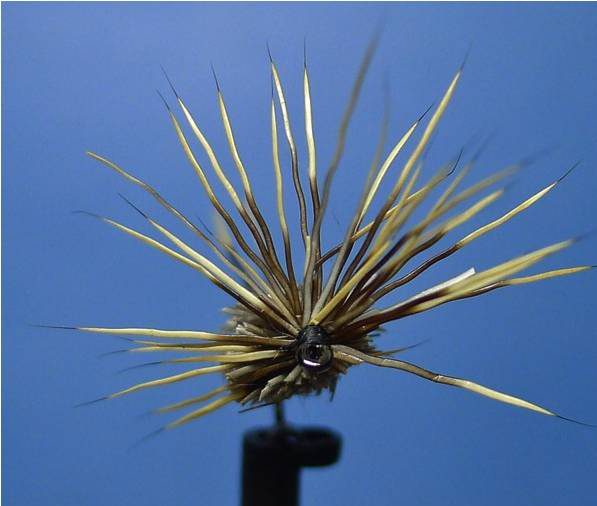
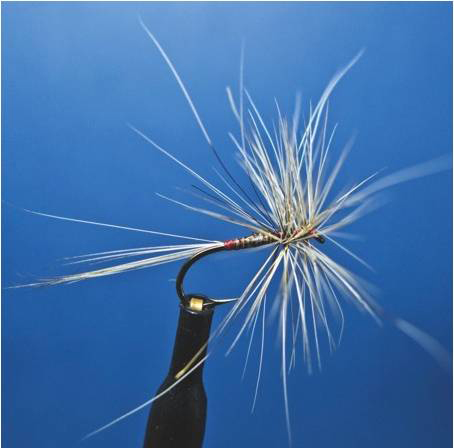
Rosen's RAB Variant
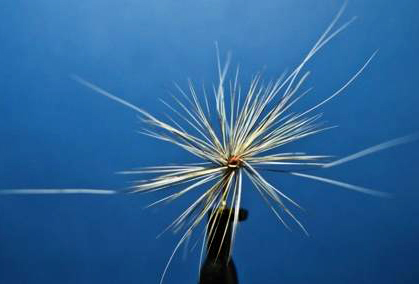
I haven't fished Austria before, but on visiting the Salzkammergut for the first time, I had the great fortune to spend a couple of days fishing with Christof Menz.
http://www.pro-guides.com/943_DE.evo?ses_language=EN#.UgqZFrxO8gs
Christoff, together with Uwe Rieder are the principles in Pro-Guides, and have a lease on water on the River Alm and its tributary the Laudach, very different stretches of water, that each, in their own way is wonderfully engrossing.
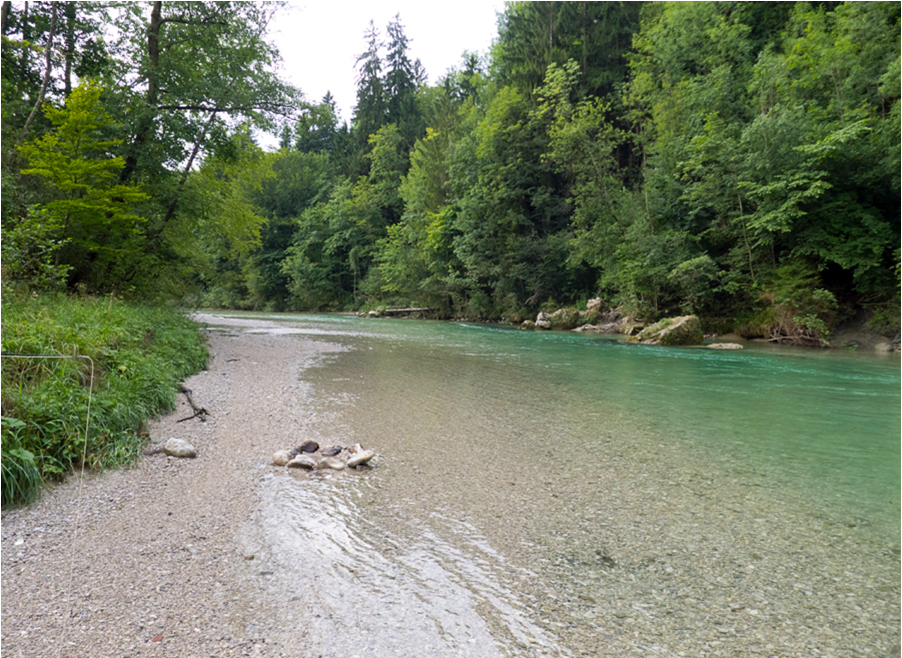
Christof is a guide worth spending time with. He has excellent English, is steeped in fly fishing and tying, and has a respect for and an enjoyment of wild fish. He is also a wizard with the fly rod, and I learnt an incredible amount being on the water with him.
The Alm, has many elements of the Traun. It has an enviable population of wild fish, some of which are very large indeed. The water is fast in places and crystal clear. It looks shallower than it is, and needs to be waded with attention. When the water deepens, it takes on a green-aqua hue, and is so breathtakingly beautiful that I was gob-smacked.
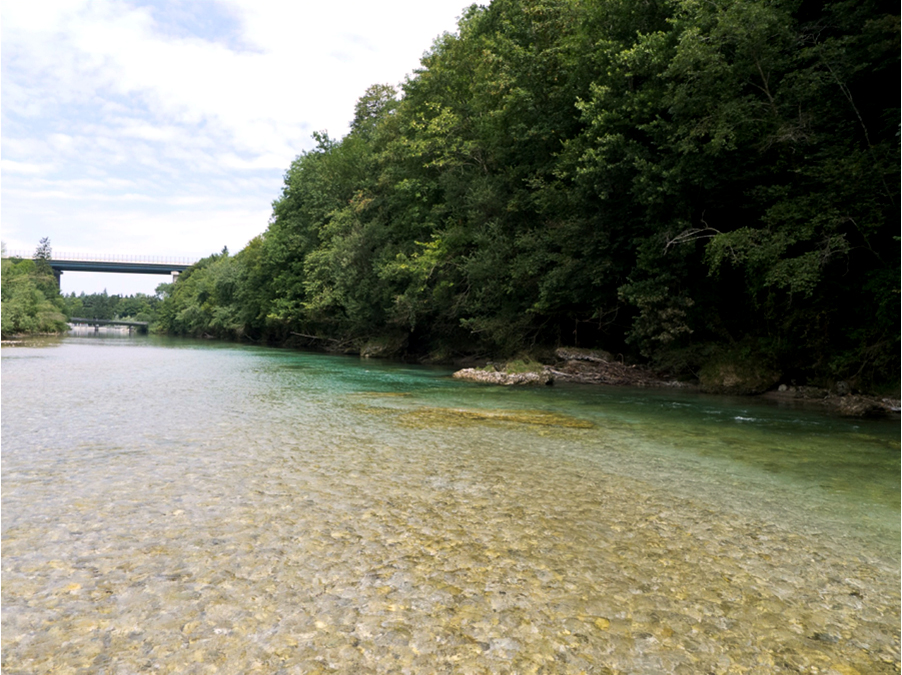
Take a look at Christof’s video – it is an understatement of just how good this river ecosystem is.
http://www.pro-guides.com/3444_DE.evo
This is a great river for sight fishing and not a system for spray and pray. The Alm is so clear, that the fish need to be approached from a little distance with a good drift. The fishing is technical (for me at least) and challenging, and the reward is wonderful quality wild browns that fight like rainbows. There are an abundance of fish to be seen, though they are very well camouflaged. In many places, the brownies have adapted to the bottom of light stones, with a light coloration that makes them almost invisible when not active.
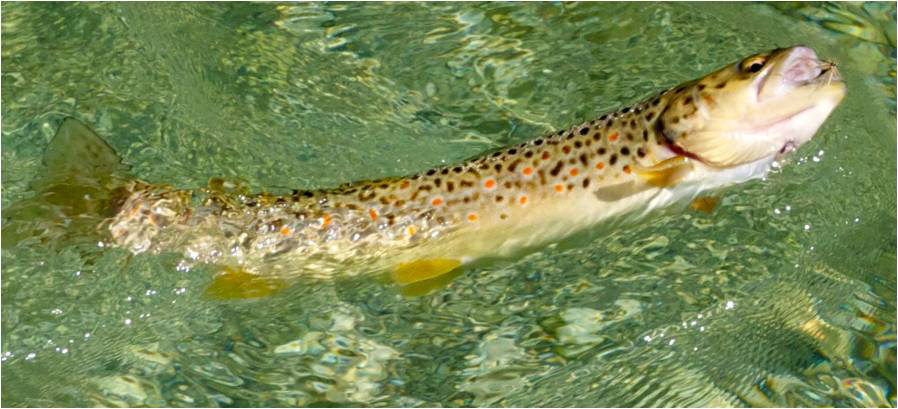
The fish were not especially selective and drift and good presentation was more important than fly choice. I fished a 5wt and the Winston Boron II t was a sweet rod for me, having had a Winston LT for the past 15 years. I learnt new techniques from Christof on how to better work the fly to trigger strikes when sight fishing, with both dries and nymphs presented upstream to spooky fish, and how to improve my roll cast to try and approach fish on gin-clear skinny water with tiny nymphs to elicit strikes. Not only can he cast, but he can teach, with a dry, understated humor that was unflappable, no matter how flamboyantly I cocked things up.
The Alm was generous with her wild brownies, on the dry, the emerger and the nymph. There were some really big guys who came to take a look at flies, but could not be tempted to take the fly, on many changes, and it may have been the difficulty of the presentation, that a brown trout can see but I could not. The RAB variant worked a treat, tied as #16 with a DCL tail, peacock quill, squirrel hair and a barred ginger Whiting hackle, all rather oversized.
The Laudach is a tributary of the Alm, but is a very different little river. The bottom has more sand and there are an abundance of almost reddish brownies and a few rainbows in skinny water, with the deeper pools holding lovely fish. The river was fished with a 3 weight, and one is often in a tunnel of overhanging trees. We hugged the left hand bank heading upstream and cast sideways only. This was the water that rewarded me some, but also mercilessly exposed my limits as a fisherman. The upstream unweighted nymph sight fished to spooky fish in flat, shallow run with very little current was too difficult for me.
That was the point I turned to Christof and said I can’t do this, now you show me how it is done. And with his signature double roll cast, I saw and understood what I now need to practice until I can do it right. It was an awesome piece of the art of fly fishing and I was lucky to see it.
The DDD in situ
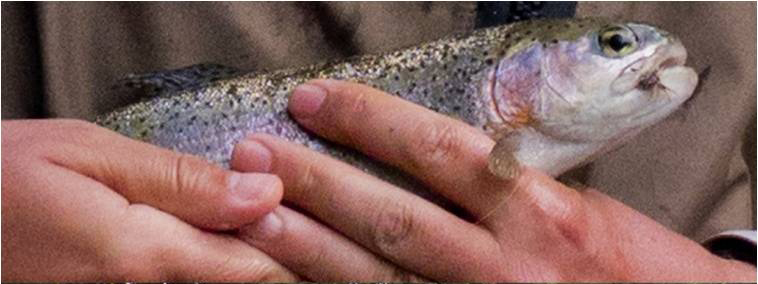
The little plunge pool, though, was packed with fish, that savaged the Klipspringer DDD pattern. Two bright, feisty rainbows and a wild brownie quickly emerged, and with the iridescent blue flight of a kingfisher, the quiet zenith of day was reached, and evening descended in all of its satisfaction and peace.
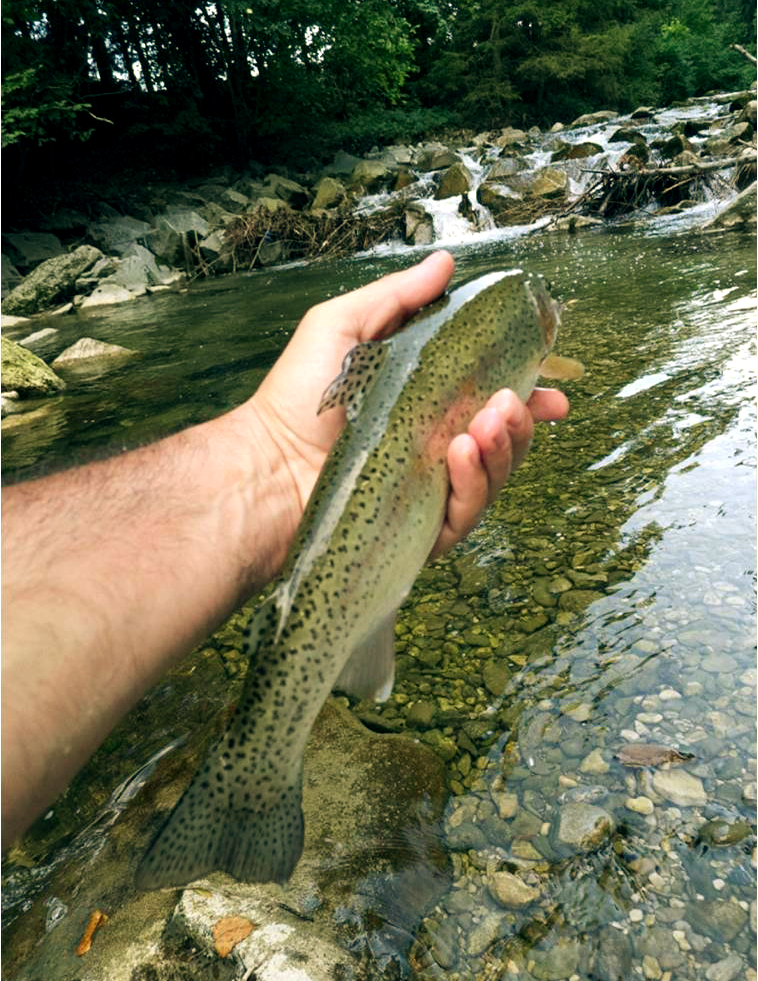
Can’t be improved – my thanks to Christof Menz and Pro-Guides – it was brilliant
(Hugh Rosen is a Professor of Medicine working in research at the Scripps Research Institute in La Jolla California. He completed his medical degree in Cape Town where he was a keen fly fisher on the Cape streams before leaving for Oxford University and later the USA. Tom Sutcliffe.)

